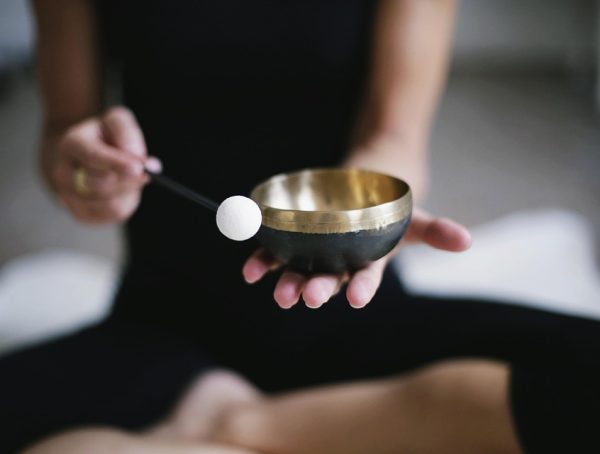Mindfulness vs. Meditation: Which is Better for Anxiety?
In today’s fast-paced, high-stress world, anxiety has become a common challenge for many people. In the quest for relief, mindfulness and meditation have emerged as popular tools to manage anxiety. Both methods have shown promise, but the question remains: which is better for anxiety? This article will delve deep into the distinctions, benefits, and practical applications of mindfulness and meditation, offering a clearer understanding to help you choose the right approach for you.
Understanding Mindfulness and Meditation
Mindfulness is the practice of being fully present in the moment, aware of your thoughts, feelings, and surroundings without judgment. It’s about cultivating a non-reactive awareness that allows you to observe life as it unfolds. This practice can be woven into daily life — during a meal, while walking, or even while washing dishes.
On the other hand, meditation is often a more structured practice that typically involves sitting quietly to focus your mind and eliminate distractions. There are many types of meditation, including focused attention meditation, loving-kindness meditation, and body scan meditation. Each method aims to quiet the mind, reduce stress, and foster a state of calm.
Benefits of Mindfulness and Meditation for Anxiety
Both mindfulness and meditation have shown effective in alleviating anxiety, but they do so in different ways.
Mindfulness:
-
Real-time Stress Management: Mindfulness allows you to address stressors in real-time. When anxious thoughts arise, being mindful can help you recognize them without judgment. This process can reduce the ‘fight or flight’ response and help keep you grounded.
-
Increased Awareness: Practicing mindfulness can increase self-awareness, enabling you to identify triggers for anxiety more readily. With regular mindfulness practice, you learn about the patterns of your thoughts and feelings, ultimately learning how to respond more effectively to them.
- Improved Emotional Regulation: Mindfulness supports emotional regulation. By being aware of your emotions and thoughts in the moment, you create space to respond rather than react, which can significantly reduce anxiety levels.
Meditation:
-
Deep Relaxation: Many types of meditation facilitate deep relaxation, which can be especially beneficial in reducing overall anxiety levels. This relaxation response counters the physiological symptoms of anxiety, such as increased heart rate and shallow breathing.
-
Increased Focus and Concentration: Regular meditation practice improves focus and concentration, which can create mental clarity. This can provide the mental space needed to detach from anxious thoughts and feelings.
- Long-term Mental Benefits: Studies have shown that consistent meditation practice fosters changes in brain areas related to stress response and emotional regulation. This can contribute to long-term reductions in anxiety levels.
Which is Better?
While both mindfulness and meditation offer invaluable tools for managing anxiety, the better choice depends on individual preferences and lifestyle.
-
Mindfulness may be more suitable for individuals looking for an ongoing practice that integrates seamlessly into their daily routines. If you find yourself often triggered by the chaos of daily life, practicing mindfulness throughout the day can provide immediate relief.
- Meditation, conversely, may appeal to those seeking a deeper dive into their mental landscape during a specific time set aside for practice. For individuals looking for a systematic approach to combat anxiety, structured meditation sessions can be particularly beneficial.
Ultimately, combining both practices can offer even greater benefits. Incorporating mindfulness into your meditation sessions can enhance the experience, while meditative practices can deepen your mindfulness.
Action Steps for Anxiety Relief through Mindfulness and Meditation
If you’re interested in exploring mindfulness and meditation to combat anxiety, consider implementing the following steps:
-
Start Small: Dedicate just five minutes a day to either mindfulness or meditation. As you become comfortable, gradually increase the duration.
-
Explore Different Practices: Try various mindfulness and meditation exercises. For mindfulness, practice being fully present while doing a routine activity, such as brushing your teeth or eating. For meditation, you might explore guided meditations available on apps like Headspace or Insight Timer.
-
Set Reminders: Incorporate mindfulness into your day by setting reminders to check in with yourself. Use phone alerts or sticky notes to prompt you to take mindful pauses throughout the day.
-
Keep a Journal: Document your experiences with both practices. Write about how you felt before and after each session, how your anxiety levels shifted, and any insights gained.
-
Join a Class or Community: If you’re struggling, consider finding a local class or community group for mindfulness or meditation. Engaging with others can enhance your commitment and provide support.
-
Practice Regularly: Consistency is key. Try to practice daily, even if only for a short time. The benefits of these practices compound over time.
- Be Patient: Both mindfulness and meditation are skills that require practice. Be gentle with yourself as you navigate through your journey.
Conclusion
Both mindfulness and meditation present unique advantages for alleviating anxiety, and the choice rests upon individual needs and preferences. By understanding the nuances of each, you can tailor your approach to better suit your lifestyle and psychological needs. Remember that the journey to managing anxiety is a gradual one, and adopting these practices can lead to profound changes over time.
As you embark on this journey, remember: "Your mind is a garden, your thoughts are the seeds. You can grow flowers, or you can grow weeds." — Author Unknown.
If you enjoyed this content and wish to explore more mindfulness tips and motivation, follow Kevin on Instagram @KSteineman.
You might also like
More from Meditation
The Role of Mantras in Transcendental Meditation: A Deep Dive
The Role of Mantras in Transcendental Meditation: A Deep Dive Transcendental Meditation (TM) has garnered a significant following across the globe, …
The Science Behind Meditation: Improving Mental Health Naturally
The Science Behind Meditation: Improving Mental Health Naturally In today's fast-paced world, the pursuit of mental wellness has become paramount. Thousands …
Understanding the 7 Types of Meditation for Beginners
Understanding the 7 Types of Meditation for Beginners: A Path to Inner Peace Meditation has become a popular practice in recent …


































